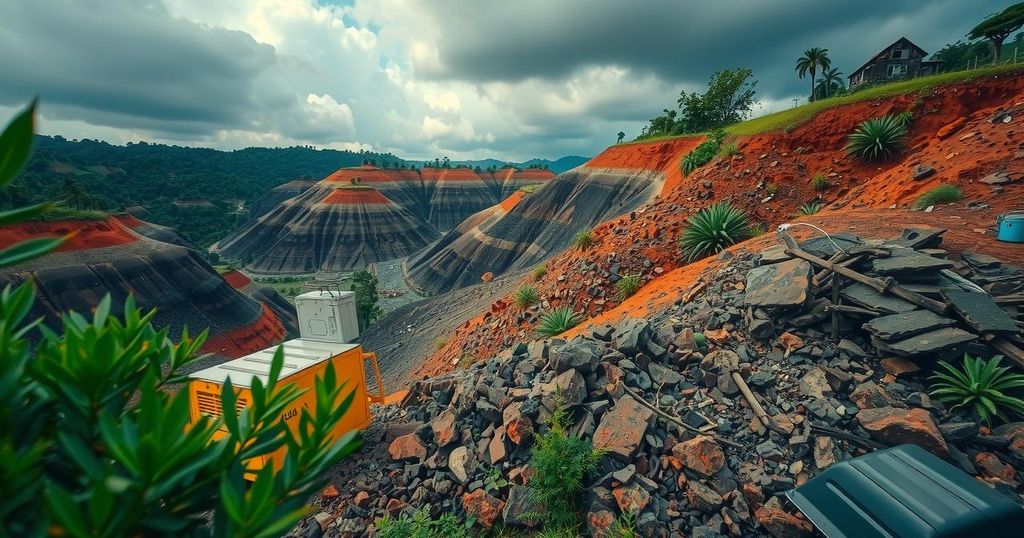The Surge of Illegal Gold Mining in Ghana: Environmental Impact and Governance Challenges

Illegal gold mining in Ghana has intensified due to a 30% increase in global gold prices, with unlicensed mines producing 1.2 million ounces this year, despite military intervention. Known as Galamsey, these operations are becoming a focal point in the lead-up to Ghana’s elections, bringing concerns of environmental destruction and corruption.
Illegal gold mining, commonly referred to as Galamsey in Ghana, has surged significantly this year, paralleling a substantial 30% rise in global gold prices. Despite military efforts aimed at curtailing these activities, unlicensed small-scale mining operations remain rampant, accounting for an estimated 70-80% of the country’s small mines. So far in 2023, these illicit mines have yielded approximately 1.2 million ounces of gold, creating a pressing issue as the country approaches its upcoming elections. The influence of these operations extends beyond economic implications, affecting local communities and the environment.
Ghana, one of Africa’s leading gold producers, has encountered a persistent challenge with illegal mining activities over the years. Known locally as Galamsey, these unregulated operations have significant implications for public health, environmental sustainability, and governance. Consequent destruction of landscapes and waterways, along with rampant corruption linked to these illegal enterprises, has prompted government responses but has not sufficiently deterred the pressing demand for gold amidst rising prices in the global market.
In conclusion, the illegal gold mining crisis in Ghana, exacerbated by soaring global gold prices and insufficient enforcement against unlicensed operations, poses critical challenges for the nation’s environment and governance. As elections draw near, addressing the ramifications of Galamsey will be essential for ensuring sustainable development and upholding rule of law in the mining sector.
Original Source: www.bbc.co.uk








